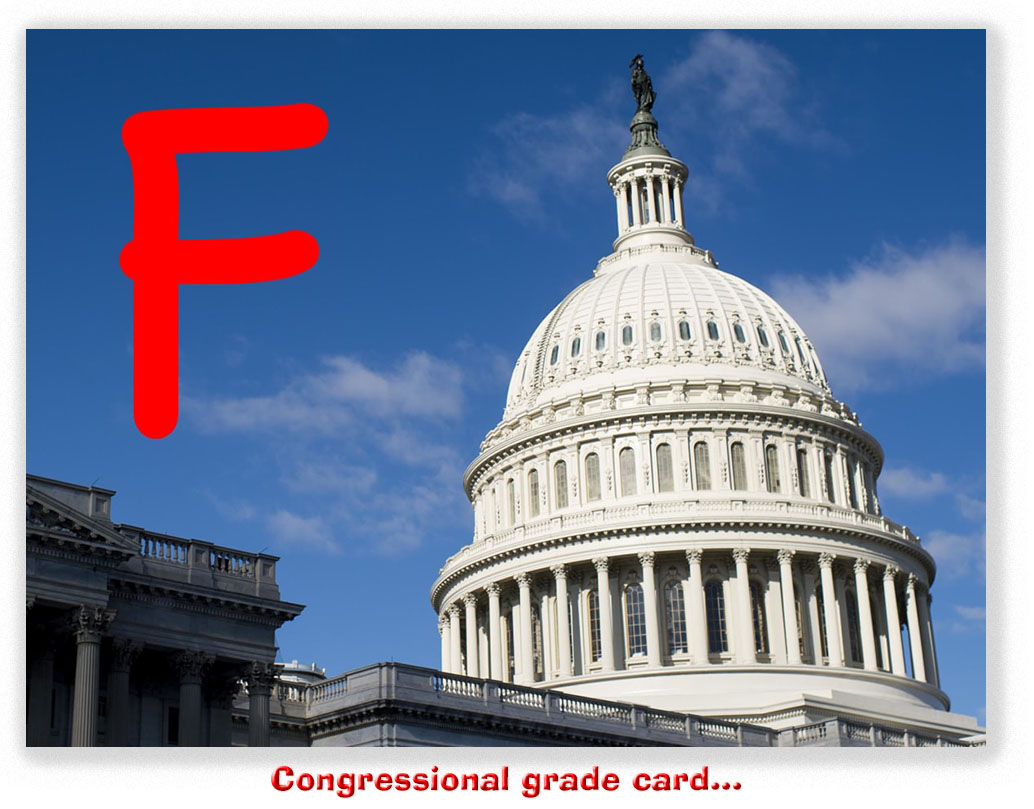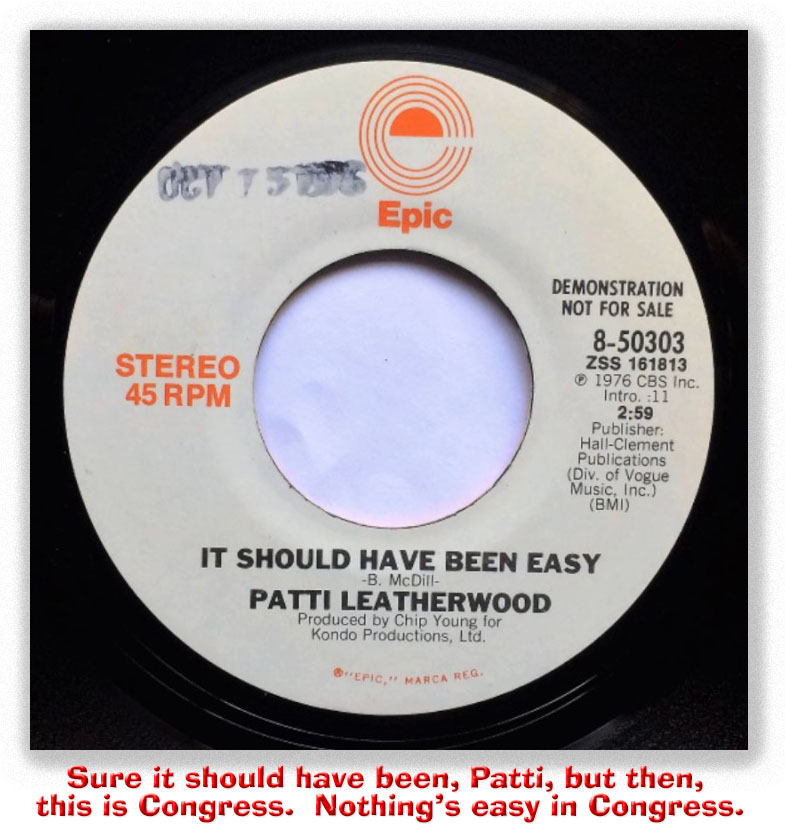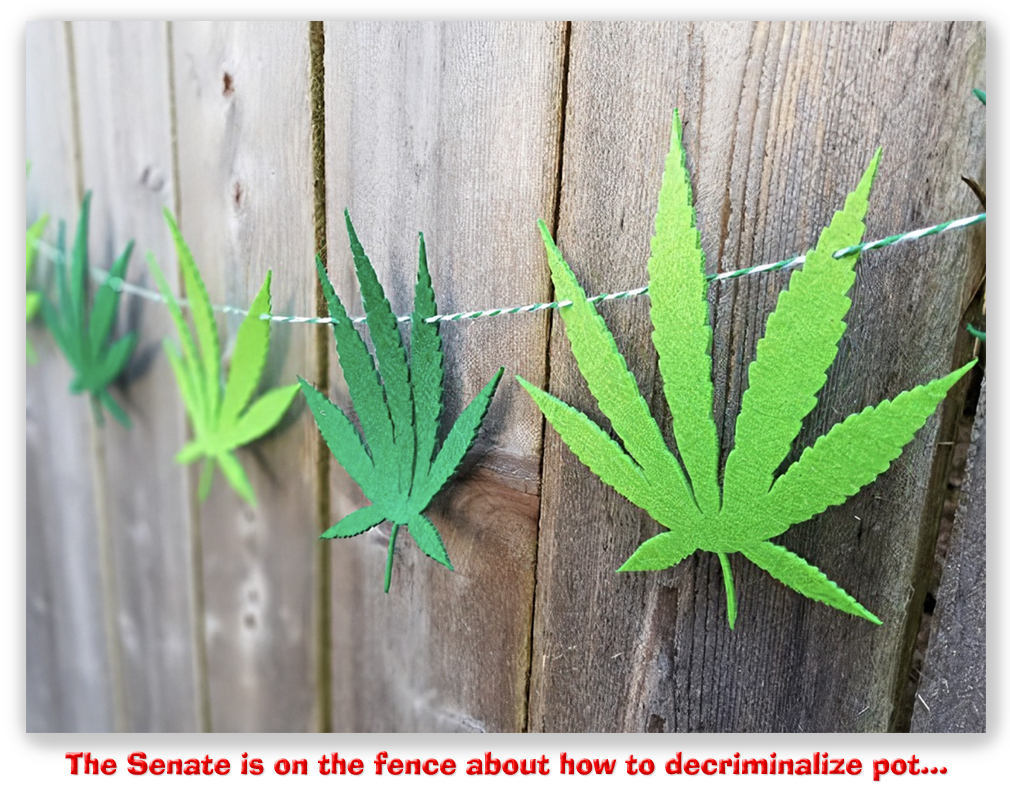We post news and comment on federal criminal justice issues, focused primarily on trial and post-conviction matters, legislative initiatives, and sentencing issues.
SENTENCE REFORM DIES WITH 117TH CONGRESS
Sentencing reform is dead for another two years.
 Of all the criminal justice reform bills in Congress – the First Step Implementation Act (S.1014), the Smarter Sentencing Act (S.1013), the COVID-19 Safer Detention Act (S.312), the Prohibiting Punishment of Acquitted Conduct Act (S.601), the EQUAL Act (S.79) and the Marijuana Opportunity Reinvestment and Expungement Act (H.R. 3617) – exactly none made it past the Senate during the two-year Congress that ends in a week. Zero. Zip. Bupkis.
Of all the criminal justice reform bills in Congress – the First Step Implementation Act (S.1014), the Smarter Sentencing Act (S.1013), the COVID-19 Safer Detention Act (S.312), the Prohibiting Punishment of Acquitted Conduct Act (S.601), the EQUAL Act (S.79) and the Marijuana Opportunity Reinvestment and Expungement Act (H.R. 3617) – exactly none made it past the Senate during the two-year Congress that ends in a week. Zero. Zip. Bupkis.
With both the House nor Senate closed for a Christmas-Passover-Kwanzaa-New Year’s vacation until next Tuesday, the 117th Congress is done. It’s the legislative equivalent to taking a knee in the final minute of a football game. The clock’s running out.
 It was clear last summer that the First Step Implementation Act, the Smarter Sentencing Act, the COVID-19 Safer Detention Act (and the Prohibiting Punishment of Acquitted Conduct Act were going nowhere. But some marijuana and cocaine reform – even though it was not quite what was in the MORE Act and EQUAL Act that passed the House – looked likely as late as last week. However, despite bipartisan support for both bills, Senate Republicans shot them down, but with plenty of help from Senate Democrats and the Biden Administration.
It was clear last summer that the First Step Implementation Act, the Smarter Sentencing Act, the COVID-19 Safer Detention Act (and the Prohibiting Punishment of Acquitted Conduct Act were going nowhere. But some marijuana and cocaine reform – even though it was not quite what was in the MORE Act and EQUAL Act that passed the House – looked likely as late as last week. However, despite bipartisan support for both bills, Senate Republicans shot them down, but with plenty of help from Senate Democrats and the Biden Administration.
As for marijuana, the Senate’s failure to act comes as a repudiation of Biden’s efforts for pot reform. In October, the president pardoned thousands of people convicted of simple marijuana possession (although no one pardoned was in federal prison) and said his administration would review how the drug is categorized.
The MORE Act would have allowed cannabis companies to open bank accounts and would have retroactively permitted changes in pot-based sentences. But efforts were severely hobbled last fall when Senate Majority Charles Schumer (D-NY), Sen Cory Booker (D-NJ) and Sen Ron Wyden (D-OR) introduced their own version of weed reform, the Cannabis Administration and Opportunity Act (S.4591).
Either MORE or CAOA would have been good for prisoners, but Democratic leadership’s push of an alternative bill diluted the groundswell of support needed to get MORE passed. By last week, the only hope was for banking reform – nothing for federal prisoners – but even that was exempted from last week’s giant end-of-year spending bill, the last chance it had for passage.
 If anything, the EQUAL Act’s failure was a bigger disappointment. Aimed at reducing the disparity in sentencing for crack versus powder cocaine offenses by making crack and powder sentences the same, it would have benefitted thousands of prisoners with retroactive relief. EQUAL passed the House with bipartisan support and had what seemed to be a veto-proof majority of 50 Democrat supporters and 11 Republican Senate co-sponsors.
If anything, the EQUAL Act’s failure was a bigger disappointment. Aimed at reducing the disparity in sentencing for crack versus powder cocaine offenses by making crack and powder sentences the same, it would have benefitted thousands of prisoners with retroactive relief. EQUAL passed the House with bipartisan support and had what seemed to be a veto-proof majority of 50 Democrat supporters and 11 Republican Senate co-sponsors.
Then, Sen Charles Grassley (R-IA), the ranking Republican on the Senate Judiciary Committee and introduced his SMART Cocaine Sentencing Act (S. 4116), which watered down EQUAL and put retroactivity in the hands of the Dept of Justice.
Still, EQUAL had a chance until Sen Tom Cotton (R–AR) single-handedly stopped the Senate from considering the bill last Wednesday. EQUAL, like the marijuana-friendly SAFE Banking Act was proposed as an addition to the catch-all spending package, an effort that Cotton frustrated.
Sen. Booker then sought unanimous consent to release the stand-alone version of the EQUAL Act from the Senate Judiciary Committee. Sen. Cotton, a hardline prohibitionist described by Beforeitsnews.com as someone “who has never met a drug penalty he thought was too severe,” objected. Sen. Booker’s “hail Mary” fell short.
Still, it appeared up until a week ago that some crack cocaine relief would be jammed into the giant end-of-year spending bill. Reuters reported a week ago that Senate negotiators had reached a potential compromise.
 But then, Attorney General Merrick Garland picked the middle of the negotiations to issue a memo directing federal prosecutors to “promote the equivalent treatment of crack and powder cocaine offenses” in two ways. If they decide that a mandatory minimum should be charged, they should “charge the pertinent statutory quantities that apply to powder cocaine offenses.” And at sentencing, “prosecutors should advocate for a sentence consistent with the guidelines for powder cocaine rather than crack cocaine.”
But then, Attorney General Merrick Garland picked the middle of the negotiations to issue a memo directing federal prosecutors to “promote the equivalent treatment of crack and powder cocaine offenses” in two ways. If they decide that a mandatory minimum should be charged, they should “charge the pertinent statutory quantities that apply to powder cocaine offenses.” And at sentencing, “prosecutors should advocate for a sentence consistent with the guidelines for powder cocaine rather than crack cocaine.”
Grassley was enraged, blasting the Garland memo as demanding that “prosecutors ignore the text and spirit of federal statutes [and] undermining legislative efforts to address this sentencing disparity.” And just like that, when the text of the 4,000-page, $1.7 trillion spending bill was released, the watered-down EQUAL Act was nowhere to be found.
“It is a searing indictment of a broken Beltway when a bill that passed the House with an overwhelming bipartisan vote, endorsed by law enforcement and civil rights leaders alike, with 11 Republican co-sponsors and filibuster-proof majority support in the Senate, and an agreement between the relevant committee Chairman and Ranking Member for inclusion in the end-of-year package, fails to make it to the President’s desk,” Holly Harris, president and executive director of the Justice Action Network, said. “The American people deserve better.”
FAMM vice president Molly Gill wants to see the EQUAL Act reintroduced next session. The politics are hard to predict: Democrats have one more seat in the Senate, while Republicans will take narrow control of the House.
The fact that a large number of House Republicans joined Democrats in passing the EQUAL Act last year is not reassuring: the trick will be getting a Republican speaker – who controls what comes up for a vote – put the bill in front of the chamber.
Any bill now pending in the House or Senate that has not passed will disappear on Jan 3, when the new 2-year Congress – the 118th – convenes. And we will start all over again, but with a much unfriendlier House of Representatives.
New Republic: Three Incredibly Popular Things That Congress Chose to Leave Out of the Spending Bill (December 20, 2022)
Reason, Congress Yet Again Fails To Pass Crack Cocaine Sentencing Reforms (December 20, 2022)
Marijuana Moment, Schumer’s “last ditch” cannabis banking push (December 19, 2022)
Reason, Merrick Garland’s New Charging Policy Aims To Ameliorate the Damage His Boss Did As a Drug Warrior (December 19, 2022)
Beforeitsnews.com, The Failure To Enact Marijuana Banking and Crack Sentencing Reforms Is a Window on Congressional Dysfunction (December 22, 2022)
Filter, The Limits of AG’s Guidelines Against Crack-Powder Sentencing Disparity (December 21, 2022)
– Thomas L. Root


















